- hisolar@cnhisolar.com
- +86-13905874507
Semi-products: circuit boards can also be provided to you to help boost your business.
The core of our products can play the same effects as the finished products.

More affordable prices compared to finished products with the same performances. Converting DC input into AC output, it can carry inductive loads, with the pure sine wave form and the peak power double the continuous output.High quality products are worth buying.
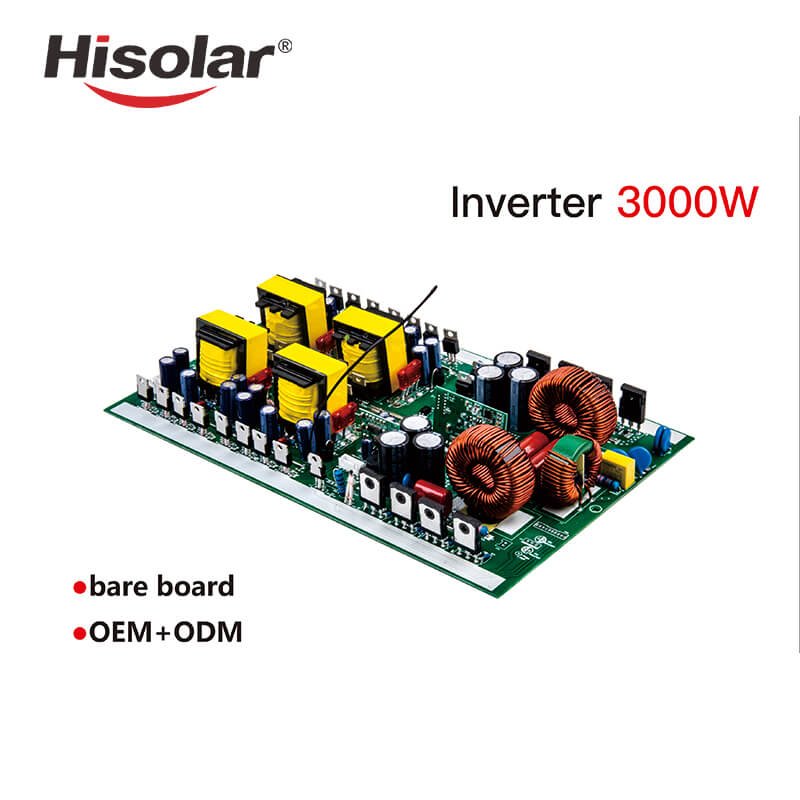
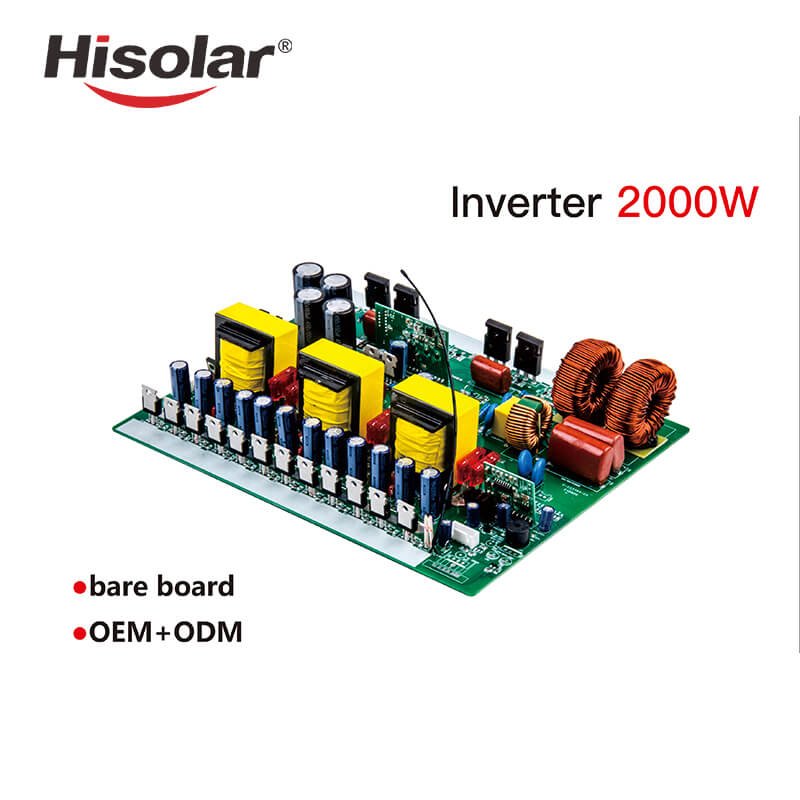
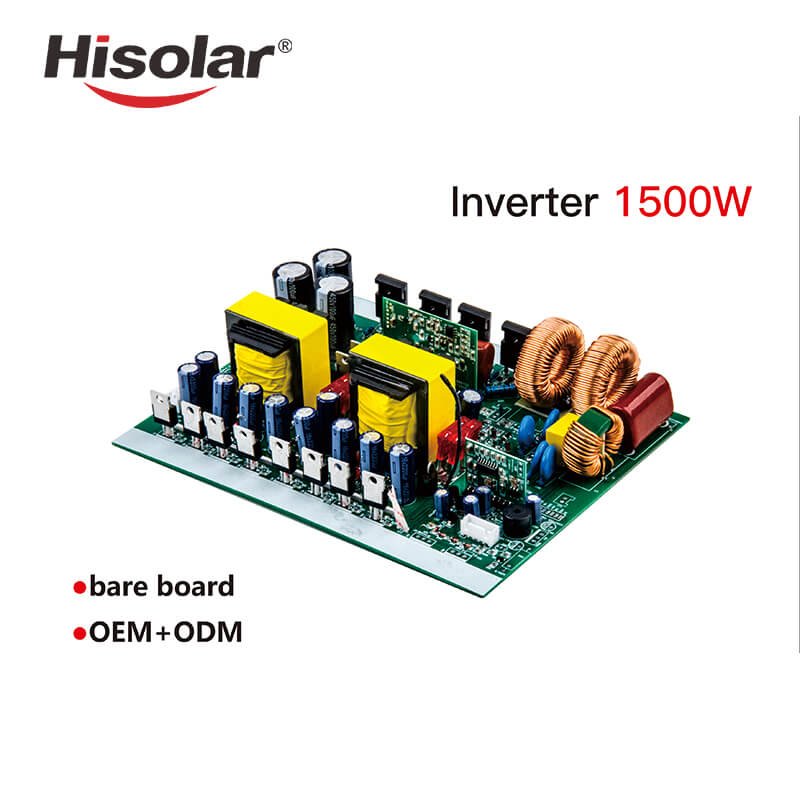
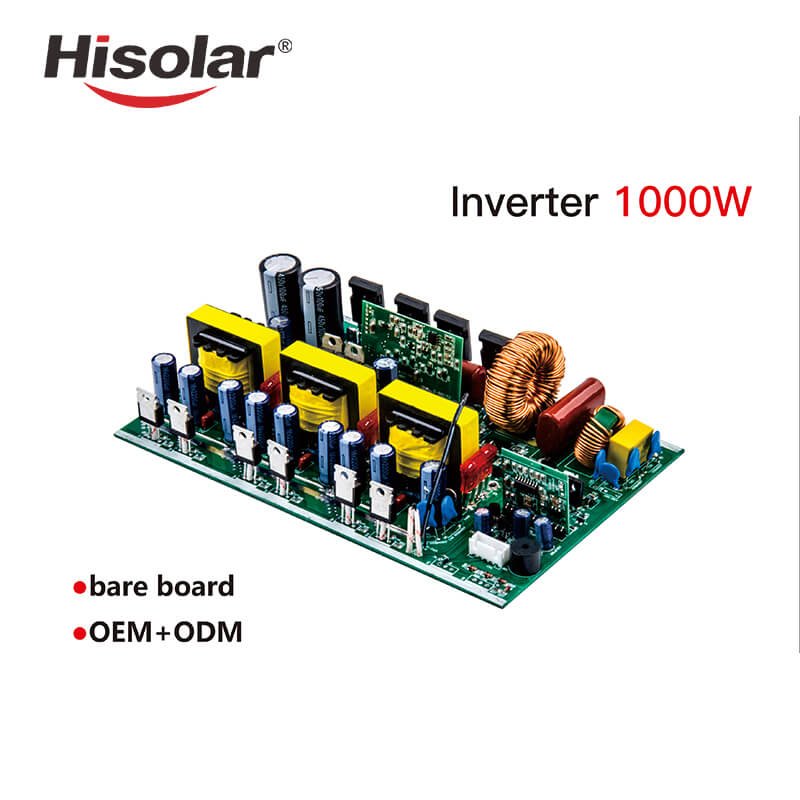
Two functions integrated in one to provide uninterruptibel power source to you. It can convert the DC power of batteries into AC output, with pure sine wave form and the peak power double the continuous output. It can also covert the AC power from the AC wall outlet into DC output to charge batteries. The intermediator- Inverter and Charger in one- between the power and the appliances, can supply uninterruptible power to crucial loads with its auto-switch between utility power and battery power.
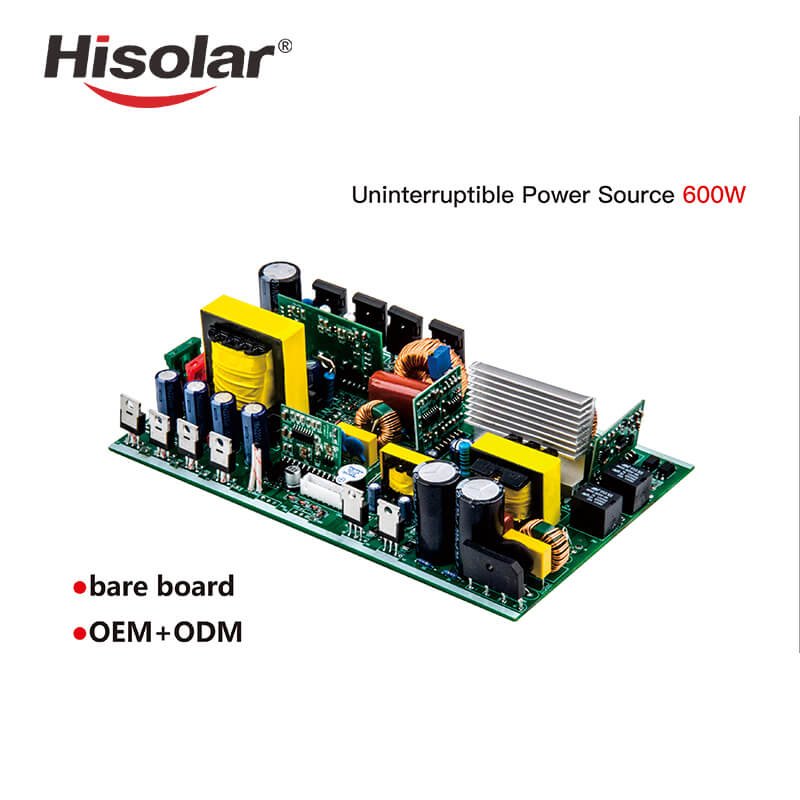
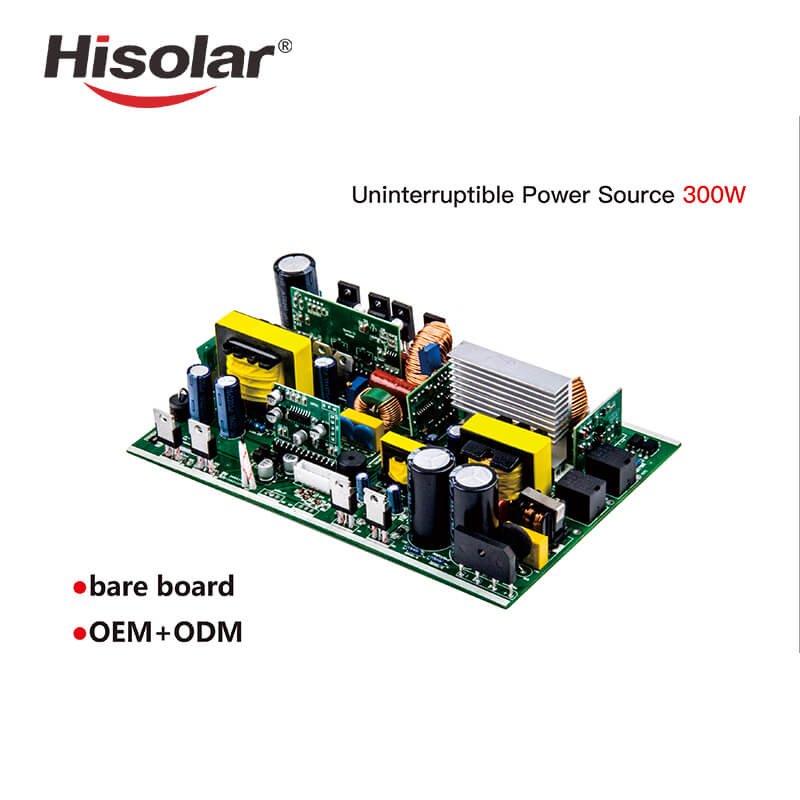
A. Basic functions:
The inverter board serves as the central component of the inverter system and manages the conversion of direct current to alternating current. It regulates the flow of electricity and controls voltage levels to ensure optimal efficiency and performance.
B. Components and design elements:
An inverter board consists of various components such as power transistors, capacitors, resistors, transformers, and integrated circuits. These components work together to convert and control the flow of electricity. The design of the inverter board takes into account aspects such as power output, voltage regulation, cooling mechanisms, and protection functions.
A. Renewable energy systems:
Inverter boards are important in renewable energy systems such as solar and wind power. It converts the direct current generated by solar panels and wind turbines into alternating current, thus enabling the integration of renewable energy sources into the electricity grid.
B. Industrial machines:
Inverters are often used in industrial machinery to control the speed and torque of electric motors. Inverter boards provide precise control of motor parameters, promoting efficient operation and reducing energy consumption in a variety of industrial applications.
C. Household appliances:
Many home appliances such as air conditioners, refrigerators, and washing machines are equipped with inverters to increase energy efficiency and improve performance. The inverter board ensures smooth operation and allows variable speed control for quieter operation and energy savings.
D. Automotive electronics:
Inverters are essential components for electric and hybrid vehicles. An inverter board allows direct current from a battery to be converted into alternating current to drive an electric motor. It also enables regenerative braking, which converts kinetic energy into electrical energy and stores it in the battery.
How long does the inverter board last?
The lifespan of an inverter board depends on various factors such as component quality, operating conditions, and maintenance. In general, a properly designed and properly maintained PCB can last for several years.
Is it possible to repair or replace the inverter board?
Depending on the problem, the inverter board may be repairable. However, it is often more cost-effective and efficient to replace the entire circuit board.
How can I ensure the reliability of my inverter board?
To ensure reliability, it is important to use high-quality components, follow proper assembly techniques, and conduct rigorous testing procedures during manufacturing. Regular maintenance and monitoring of your inverter system also contribute to long-term reliability.
Are there safety considerations when working with inverter boards?
Yes, working on inverter boards involves dealing with high voltages and high currents. It is important to follow safety guidelines such as: For example, wear appropriate protective equipment, disconnect power before performing maintenance, and seeking professional assistance if necessary.
Inverter boards are fundamental components in the world of power electronics, enabling efficient and reliable conversion of DC to AC power. These circuit boards play a critical role in a wide range of applications, from renewable energy systems and industrial machinery to home appliances and automotive electronics. By understanding the functions and application scenarios of inverter boards and answering frequently asked questions, you will understand the importance of inverter boards in providing efficient and sustainable power to the modern world. Masu.
We value your privacy
We use cookies to enhance your browsing experience, serve personalised ads or content, and analyse our traffic. By clicking "Accept All", you consent to our use of cookies.